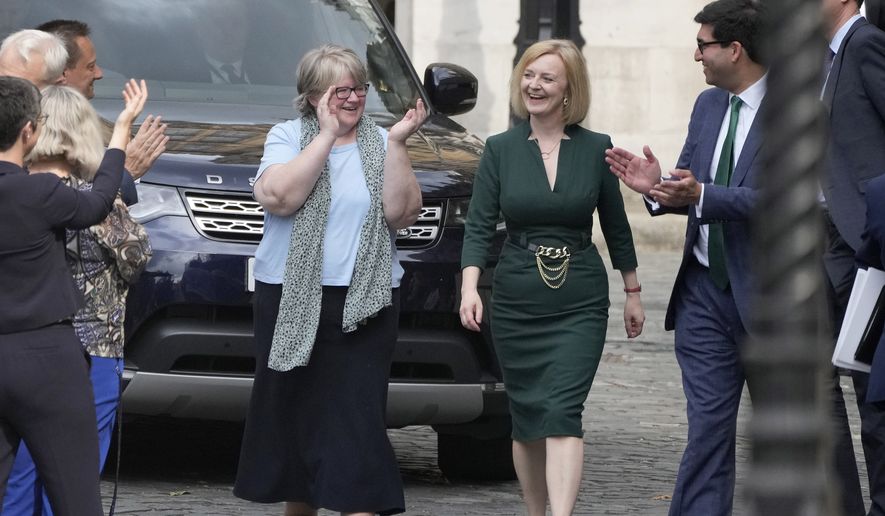Two top ministers in Prime Minister Boris Johnson’s Cabinet will now square off in the race to succeed him as former treasury chief Rishi Sunak and Foreign Secretary Liz Truss emerged as the finalists in a spirited contest that could bring new divisions for the ruling Conservative Party.
Mr. Sunak, the front-runner, and Ms. Truss will now face a vote of the Tory party faithful around the country, having survived a series of secret knockout votes by Conservative MPs in Parliament. Trades Minister Penny Mordaunt was eliminated in the latest vote Wednesday.
The winner of the party membership caucus, expected by the beginning of September, will immediately move into 10 Downing Street as the new prime minister. With a sizable ruling majority in Parliament, the government does not need to call another general election until the end of 2024.
But the race, in which nearly a dozen candidates entered the contest to succeed the scandal-plagued Mr. Johnson, has exposed tensions within the ruling party.
Ms. Truss was one of several candidates who attacked Mr. Sunak’s position that Britain could not afford tax cuts when dealing with soaring inflation and the possibility of a recession.
Ms. Truss, who strongly supports Brexit and vows to cut taxes and regulations, received 113 MP votes Wednesday, behind Mr. Sunak’s 137 votes, but ahead of Ms. Mordaunt at 105. But British political handicappers say much of Ms. Mordaunt’s support will likely gravitate toward the more conservative and confrontational Ms. Truss.
Mr. Sunak’s decision to resign as chancellor of the exchequer earlier this month helped convince Mr. Johnson to step down as his popularity polls plunged.
Mr. Sunak, a 42-year-old former investment banker whose parents are of Indian descent, stressed a message of electability in a video shortly after the results were announced. Recent opinion polls say Britain’s troubled economy and Mr. Johnson’s ethical woes have left the Conservative Party trailing the opposition Labour Party, which is looking to return to power for the first time in a decade.
The question, Mr. Sunak said, is “who is the best candidate who can beat [Labour leader] Keir Starmer and the Labour Party in the next election? I believe I am the only candidate who can do that.”
Ms. Truss, 46, made a direct appeal to the more conservative party base in her post-vote message, promising to “cut taxes, grow our economy and unleash the potential of everyone in our United Kingdom.”
“As prime minister, I would hit the ground running from day one, unite the party and govern in line with Conservative values,” she said in a statement.
Ms. Truss has branded her rival a “socialist” for resisting immediate tax cuts, while Mr. Sunak, a fiscal moderate, has hit back by accusing his rivals of telling economic “fairy tales” to voters in difficult times.
Although Mr. Sunak was the top finisher in each of the four parliamentary elimination votes over the past two weeks, the party’s base is considered more conservative and may lean toward Ms. Truss. Many of Mr. Johnson’s supporters also blame Mr. Sunak for giving the prime minister the final shove out of office, and are expected to work against him.
For his part, Mr. Johnson did his last traditional Prime Minister’s Questions session, extolling his successes in negotiating a final Brexit deal, overseeing a global climate summit, and being among the most visible Western leaders backing Ukraine in the war with Russia.
But opponents focused instead on the prime minister’s personal and policy failings brought on by the COVID-19 pandemic and the sharp economic downturn that accompanied it.
With trademark bravado, Mr. Johnson ended his remarks on the floor of the House of Commons by telling MPs, “Mission largely accomplished, for now … Hasta la vista, baby.”
— This article was based in part on wire service reports.
• David R. Sands can be reached at dsands@washingtontimes.com.




Please read our comment policy before commenting.